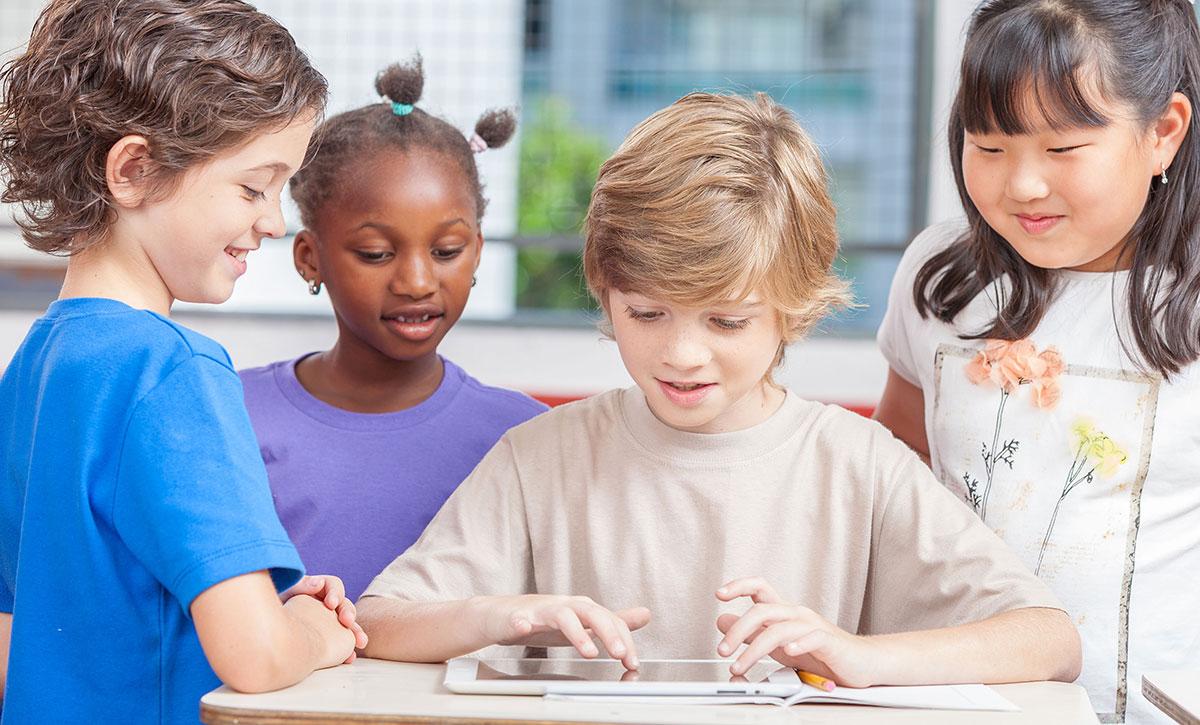Integrating SEL into the Digital Classroom: Effective Strategies for Promoting Student well-Being Online
In today’s rapidly evolving educational landscape, Social-Emotional learning (SEL) has become a cornerstone of holistic student growth. as classrooms transition to digital platforms, educators face new challenges and opportunities in fostering student well-being online. This guide explores effective strategies for integrating SEL into the digital classroom, highlights key benefits, and provides actionable tips that ensure student wellness in virtual learning environments.
Table of Contents
- Why SEL Matters in the Digital Classroom
- Benefits of Integrating SEL into Online Learning
- effective Strategies for Promoting Student Well-Being Online
- Case Studies: Success Stories in SEL and EdTech
- Practical Tips for Educators: Fostering SEL Virtually
- Conclusion
why SEL Matters in the Digital Classroom
The core of SEL revolves around equipping students with the skills to manage emotions, establish healthy relationships, and make responsible decisions. In the digital classroom, thes socio-emotional skills are crucial:
- Remote learning environments present unique emotional and psychological challenges for students.
- Online interactions may led to misunderstandings, isolation, or increased anxiety.
- SEL helps students develop resilience, adaptability, and empathy—essential for navigating virtual spaces.
As education moves online, integrating SEL is no longer optional; it’s a necessity for fostering meaningful connections and supporting student mental health.
benefits of Integrating SEL into Online Learning
When thoughtfully implemented, SEL in the digital classroom transforms student experiences. Here’s how integrating SEL online can benefit students, teachers, and institutions:
- Enhances Student Engagement: SEL activities promote collaboration and participation, reducing passive learning.
- Reduces Anxiety and Stress: Building emotional awareness helps students cope with the challenges of remote education.
- Improves Academic Outcomes: Studies show that SEL positively impacts academic performance and motivation.
- Fosters Positive Online community: SEL strengthens peer relationships and supports a safe, inclusive virtual habitat.
- Empowers Educators: Teachers equipped with SEL tools can better understand and respond to student needs.
Effective Strategies for Promoting Student Well-being Online
Integrating SEL effectively into the digital classroom requires both intentional planning and the right tools. below are proven strategies to promote student well-being through online learning:
1. Create Safe and Supportive Online Spaces
- Establish clear expectations for respectful communication in virtual discussions.
- Use ice-breakers,check-in activities,and digital mood meters to encourage emotional sharing.
- Offer anonymous channels for students to express concerns or ask for help.
2. Integrate SEL Activities into the Curriculum
- Embed reflection exercises and goal-setting discussions into lesson plans.
- Leverage multimedia (videos, podcasts) to explore empathy, conflict resolution, and mindfulness.
- Incorporate project-based learning that encourages teamwork and self-awareness.
3. Foster Strong Teacher-Student Relationships
- Schedule regular virtual “office hours” for personalized support.
- Provide feedback focused not just on academics, but also on social-emotional growth.
- Celebrate student achievements with digital badges and public recognition.
4. use EdTech tools Designed for SEL
- Platforms like ClassDojo, flipgrid, and Nearpod have built-in features for SEL tracking and engagement.
- Utilize polls and interactive quizzes to gauge student feelings and opinions.
- Employ guided meditation apps or timers for mindful breaks during online classes.
5. Promote Digital Citizenship and Online Empathy
- Teach students about responsible online behaviour and the impact of digital footprints.
- Model inclusive language and cultural sensitivity during virtual lessons.
- Address cyberbullying proactively through discussion and clear policies.
Case Studies: Success Stories in SEL and EdTech
Many schools and districts have witnessed transformative results by prioritizing SEL in their digital classrooms. Below are two inspiring examples:
Urban Middle School – Building Connection Through Daily Check-Ins
Faced with sudden remote learning, the school incorporated daily SEL check-ins via Google Classroom. students selected emojis that reflected their mood and shared one positive thing each day. Teachers used this data to address students’ needs in real time. The result: increased student attendance,improved trust,and a noticeable drop in online conflicts.
International IB Academy – Project-Based SEL and Virtual Peer Mentoring
The academy launched an SEL initiative combining group projects with virtual mentorship. Older students led workshops on stress management and conflict resolution. Peer mentors supported new students in adapting to the digital platform. Academic outcomes improved, and students reported feeling more connected and confident.
Practical Tips for educators: Fostering SEL Virtually
Checklist for Digital SEL Success
- Start Each Class With an SEL Ritual: use greetings, mindful moments, or gratitude sharing.
- Encourage student Voice and Choice: Allow students to choose topics, projects, or virtual group members.
- Prioritize versatility: Understand that remote learning might potentially be harder for some students.Allow for flexible deadlines and accommodations.
- Collaborate with Families: Provide resources for parents to support SEL at home.
- Track SEL Progress: Use digital portfolios or journals to monitor growth.
- Stay Up-to-Date: Regularly review new EdTech SEL apps and tools.
wordpress CSS Styling Tip
For those using WordPress, apply custom CSS for lists, callout blocks, and headings to improve readability and highlight SEL sections. Example:
.wp-block-group { background: #f9f9f9; padding: 2em; border-radius: 8px; }
h3 { color: #0275d8; }
ul { margin-left: 1.5em; }
Conclusion
The integration of Social-Emotional Learning (SEL) in the digital classroom empowers students to thrive academically and emotionally, no matter where learning occurs.By employing research-backed strategies, fostering positive relationships, and leveraging innovative EdTech tools, educators can create online spaces that promote well-being, engagement, and growth.
As the educational landscape continues to evolve, prioritize SEL to ensure every student is seen, heard, and supported—whether in a physical or virtual classroom.
Keywords: Integrating SEL, Digital Classroom, Student Well-Being Online, Social-Emotional Learning, Promoting SEL, EdTech Strategies, SEL Activities, Online Learning, Virtual Education, Student Mental Health

